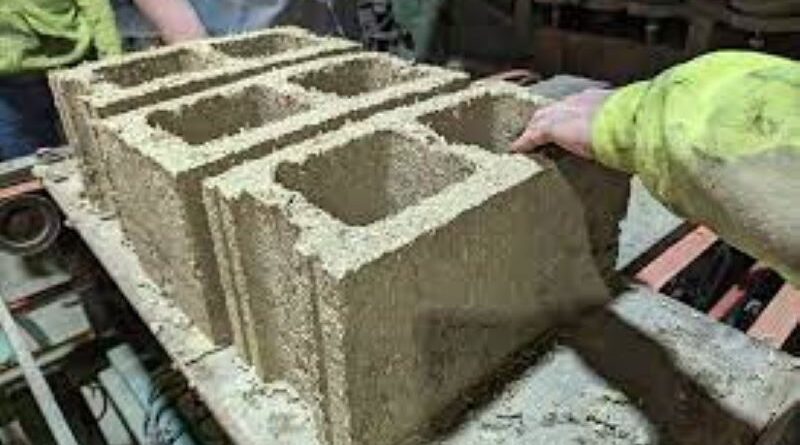Eco-friendly, hemp-based concrete blocks provide sustainable alternative
Researchers at the University of Nebraska-Lincoln have developed a new type of building block—a hemp-based option that could support eco-friendly construction. According to the team, innovation goes beyond mere construction, focusing on building a sustainable future.
Marc Maguire, an assistant professor at UNL’s Durham School of Architectural Engineering and Construction, leads the team nearing the release of the hemp-based cinder blocks.
“This product is basically tailored for someone who wants a lower carbon footprint,” Maguire said. “We’re very comfortable saying it’s carbon-negative. Though one can debate how negative, we compare very favorably to the status quo.”
The new material is a combination of hemp’s fibrous core and a binding agent. The blocks are as sturdy as traditional cement and 25% lighter. Maguire’s team believes its manufacturing process is key to reducing atmospheric carbon dioxide.
The science behind the blocks involves carbon sequestration and carbonation, natural processes that store and remove atmospheric carbon. Carbon sequestration occurs over the long term in plants, soils, and oceans. During growth, hemp absorbs carbon through photosynthesis, trapping it when transformed into concrete blocks. The lime in the concrete undergoes carbonation, turning into calcium carbonate and capturing more carbon over time.
A 2016 study found that cement absorbed 16.5 gigatons of CO2 from 1930 to 2013. However, the cement industry struggles to offset its increasing emissions amidst growth. Traditional cement production accounts for 7% of global CO2 emissions, more than doubling the aviation industry’s share of emissions.
Maguire’s blocks aim to reduce pollution and meet the American Society for Testing and Materials’ load-bearing structural standards.
Our goal from the beginning was to meet all these minimum requirements that an engineer would normally need to abide by,” Maguire said. “So now, the decision is very easy for them. We haven’t really had any challenges in that respect. It took us maybe three months of trial and error in the lab, but ultimately we met those requirements.”
Despite the innovation, Maguire doesn’t view his product as a direct alternative to concrete blocks. Research indicates it would take 260,000 acres of hemp to replace a billion pounds of concrete. Yet, only a fraction—28,000 acres—was harvested in 2022, highlighting a current production gap.
“Anybody that knows me knows I love concrete,” Maguire said. “It’s a wonderful material. We wouldn’t be where we are without concrete. I really think we’re augmenting the market.”
The team is already receiving significant interest for its block production.
“I personally get calls every week about this,” Maguire said. “It’s exciting. As we ramp up production, hopefully, we can start fulfilling some of this.”
As the industry adapts to these sustainable materials, it could pave the way for further groundbreaking developments. Maguire asserts that the technology is adaptable and can maintain its properties despite production changes.
“Sheetrock, drywall panels, structural panels like OSB [oriented strand board] or plywood—all of these things are possible with what we’ve got,” he said. “We’ve just chosen to focus on one thing so that we can get stuff moving.”
Source : san.com




